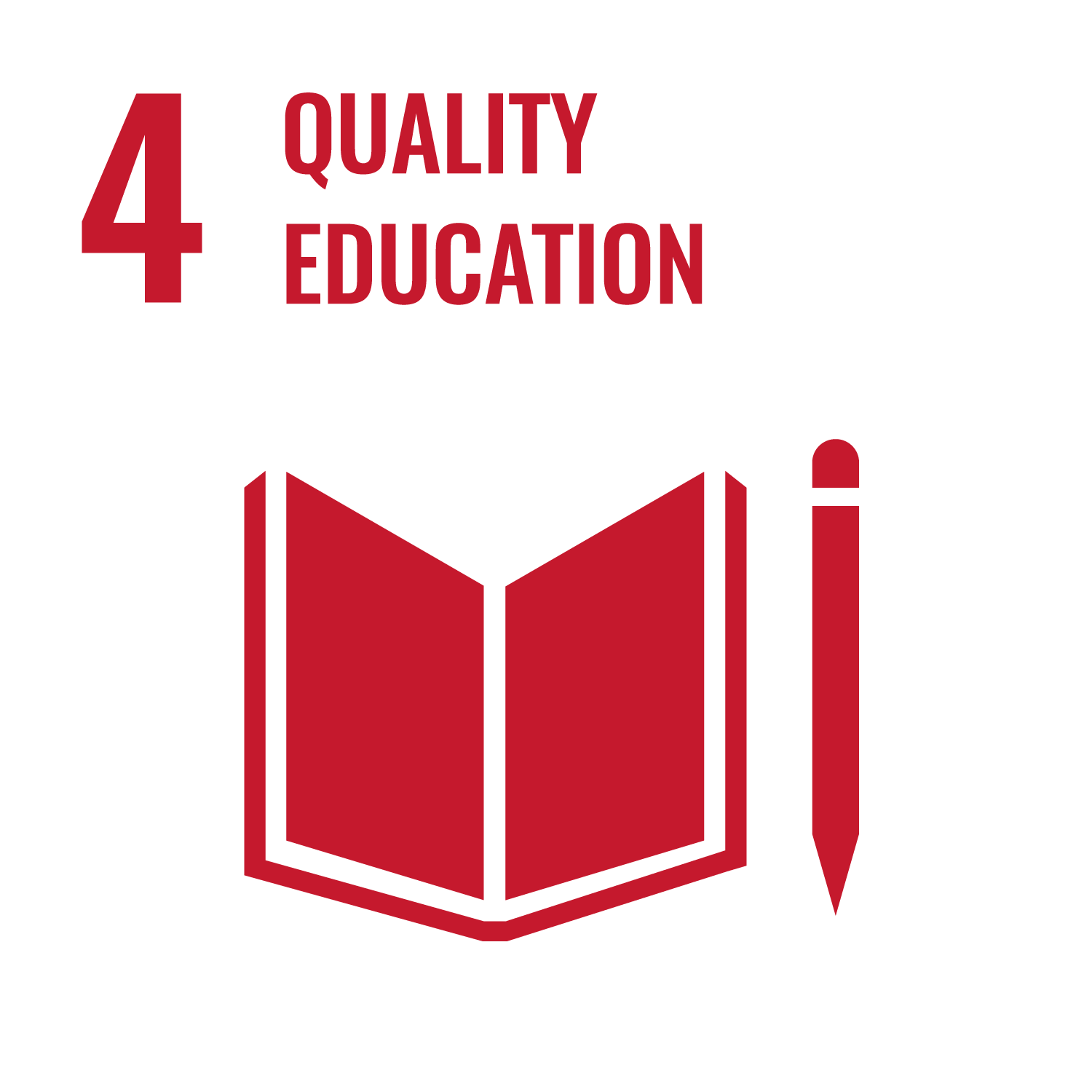 Goal 4. Quality Education
Goal 4. Quality Education
SUSTAINABLE DEVELOPMENT GOAL 4
During the 2023–2024 academic year, the Arab Academy for Science, Technology & Maritime Transport (AASTMT) solidified its position as a regional leader in inclusive education, lifelong learning, and community engagement. The Academy implemented a diverse array of public training programs, open-access scientific events, and school-centered outreach initiatives, all aimed at broadening participation and enhancing societal learning capacities.
AASTMT's lifelong learning offerings expanded considerably across professional, technical, and vocational areas. Various cohorts of Professional Diploma programs were launched in collaboration with national syndicates and industry partners, providing practical training in Quality Management, Healthcare Quality, Laboratory Accreditation, Food Safety, and Administrative and Supervisory Skills. These initiatives ensured accessible upskilling opportunities for working adults and early-career professionals (e.g., Professional Diploma in Quality Management, May 2024; waves of Healthcare Quality Management; Food Safety Diploma, August 2024). The Academy also broadened access to technical and vocational education through the Industry Service Complex, which offered hands-on courses in Refrigeration and Air Conditioning, Electrical Control, ISO 9001 Lead Auditing, First Aid, Firefighting, and HACCP food safety systems. The Port Training Institute, boasting over 40 years of experience and training more than 100,000 individuals, continued to enhance national and regional workforce preparedness.
AASTMT exhibited a firm commitment to socially responsive education through targeted programs for vulnerable groups. Initiatives included Occupational Safety and Health training for 43 Sudanese participants in collaboration with Caritas Egypt and GIZ, as well as a Memorandum of Understanding with Caritas to provide technical and vocational training for refugees. These efforts underscore the Academy’s belief in education as a vehicle for empowerment, resilience, and inclusion.
The Academy facilitated widespread public access to educational resources through free events, research spaces, and competitions. The Robotak Initiative offered youth aged 7 to 17 complimentary hands-on training in robotics and coding. AASTMT also welcomed numerous public conferences to its campuses, including the Young Researcher Conference, the International Day of Women and Girls in Science (in partnership with UNESCO), and open seminars focusing on AI, sustainability, and problem-solving. The Academy hosted large-scale national and international events that engaged both students and the public, such as the Egyptian Olympiad in Informatics, ICMISI 2024, and the World Junior Modern Pentathlon Championships.
Significant outreach initiatives were directed at schools and pre-university learners. These included STEM outreach sessions for high school students, sustainability awareness visits under the theme “Toward a Green and Sustainable Future,” and educational caravans promoting vocational pathways in technical schools. Competitive programming and computational thinking outreach achieved record participation levels, exemplified by the Beaver Challenge, which engaged 85,000 school-aged participants, and the Egyptian Collegiate Programming Contest, which involved 12,000 students from 123 universities and institutes.
AASTMT's programs further reinforced gender inclusion and equal opportunities through events such as the Women in Engineering (WIE) Forum in collaboration with RENEW MENA, along with workshops promoting women’s leadership and participation in STEM. Many open events were free, certificate-granting, and accessible without prerequisites, ensuring equitable opportunities for learners from all backgrounds.
Through its holistic approach—encompassing professional education, public access, youth engagement, and inclusive outreach—AASTMT made significant strides toward guaranteeing inclusive and equitable quality education and fostering lifelong learning opportunities for all.




